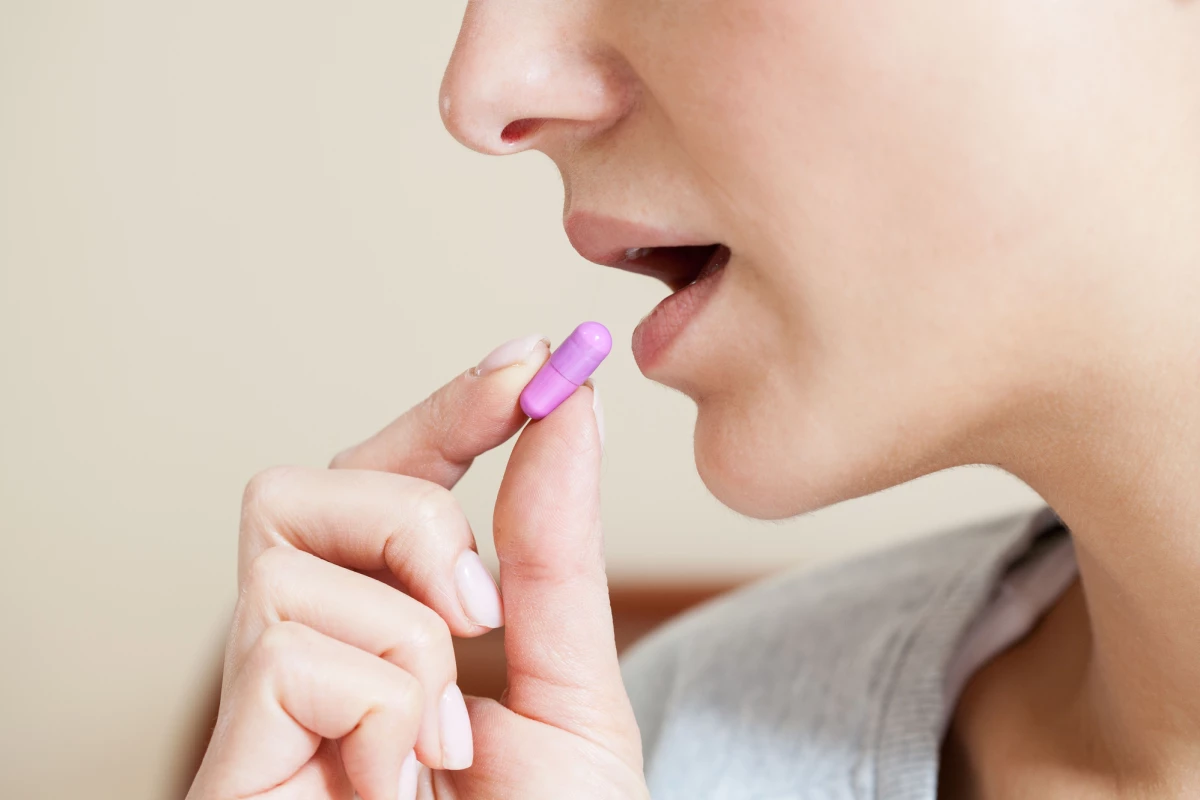Pfizer’s experimental antiviral pill, developed to inhibit the replication of SARS-CoV-2 and prevent severe COVID-19, has shown extraordinary efficacy in the first data from a large Phase 2/3 clinical trial. The results, yet to be published in a peer-reviewed journal, reveal the new oral treatment reduces hospitalization or death in high-risk patients by 89 percent compared to placebo.
From vaccines to monoclonal antibodies, an incredible array of treatments have been developed since the novel coronavirus emerged in early 2020. But perhaps the biggest missing link in our arsenal of therapeutics has been a simple pill that can be taken at home in the earliest stages of the disease, helping prevent severe COVID-19.
Last month the first serious oral COVID-19 antiviral candidate emerged after pharmaceutical company Merck revealed its drug molnupiravir reduced one’s risk of hospitalization or death from COVID-19 by 50 percent. Molnupiravir was in development as an influenza antiviral before the pandemic kicked off in 2020, but prior studies suggested it was also effective against the SARS and MERS virus, so it was quickly repurposed as a COVID-19 antiviral.
Pfizer’s new antiviral is a little different. It is the first drug specifically designed to target SARS-CoV-2 to progress this far in human clinical trials.
Originally dubbed PF-07321332 (now formally named PAXLOVID), the drug arose out of long-standing research into an antiviral targeting the original SARS virus that emerged 20 years ago. In early 2020 Pfizer quickly tuned its pre-existing experimental SARS antiviral molecule to particularly focus on SARS-CoV-2, and now the first interim data from large-scale clinical trials indicate extraordinarily promising efficacy.
The trial focused on unvaccinated patients at a high-risk of developing severe COVID-19. The primary cohort were administered a five-day course of the antiviral pill, starting within three days of symptoms appearing.
Out of 389 participants taking the antiviral only three hospitalizations were reported, with no deaths. This compared to a placebo group of 385 participants which saw 27 hospitalizations and seven deaths. So that means the antiviral is 89 percent effective at preventing hospitalization or death.
Another arm of the trial tested the treatment up to five days following the onset of symptoms and the results were just as promising. In that cohort only 1 percent of subjects were hospitalized (6/607), with no deaths, compared to the placebo group which saw 6.7 percent hospitalized (41/612) and 10 deaths.
An independent data monitoring committee recommended enrollments in the trial be discontinued due to the “overwhelming efficacy” of these interim results. Over 3,000 participants were planned to be enrolled in this trial, however, the high statistical significance of the early data means these results will be enough for the U.S. Food and Drug Administration (FDA) to evaluate an emergency use authorization over the the coming weeks.
“Today’s news is a real game-changer in the global efforts to halt the devastation of this pandemic,” says Albert Bourla, Pfizer’s CEO. “These data suggest that our oral antiviral candidate, if approved or authorized by regulatory authorities, has the potential to save patients’ lives, reduce the severity of COVID-19 infections, and eliminate up to nine out of ten hospitalizations.”
The COVID-19 antiviral was found to be incredibly safe, with no serious adverse effects seen in a large cohort of over 1,800 subjects. Preclinical tests also indicated no evidence of the drug causing mutagenic DNA interactions, an issue that potentially could limit broad use of molnupiravir, the other COVID-19 oral antiviral likely soon to be approved for use.
Two more large trials testing Pfizer’s antiviral in different groups are ongoing. One trial is investigating the drug’s efficacy at preventing severe disease in low-risk COVID-19 patients. This particular trial is including a cohort of vaccinated subjects to explore how well the drug stifles breakthrough infections.
Another trial is looking at whether the antiviral can prevent SARS-CoV-2 infection in close contacts of symptomatic infections. This trial is recruiting hundreds of people who live with positive SARS-CoV-2 cases. Both trials should deliver preliminary results before the end of the year.
Speaking to StatNews infectious disease expert Nahid Bhadelia, from Boston University, stressed the advent of COVID-19 oral antivirals cannot replace the prophylactic value of vaccines. These new therapies should not be considered alternatives to vaccination. Instead, oral antivirals are extra layers of protection for those experiencing vaccine breakthrough infections or those with medical conditions making vaccines less effective.
“Would you rather get stitches over wearing a seat belt?” Bhadelia asks. “No. So why would you pick antivirals over a vaccine? You take a vaccine first for protection, and if you’re unfortunate to get a breakthrough infection and you’re high-risk, that’s where an antiviral helps.”
Source: Pfizer




